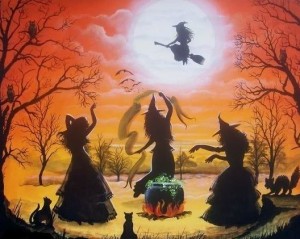Charged with negative connotation, the word “clique” may immediately drop you back into the ether of adolescence, recalling personal instances of cliquey behavior.
But, are all cliques bad?
According to Merriam-Webster’s dictionary, a clique is a “small group of people who spend time together and who are not friendly to other people.” It is also defined as “a narrow, exclusive circle or group of persons; especially one held together by common interests, views or purposes.”
What if you have a circle of friends who you have known for years and years, you have a history with the group and you always do things together. Your families hang out and you vacation together. Are you then considered a clique? This question was raised by a participant at a workshop I recently facilitated, and I thought it was a good question.
Friends who have mutual interests and history in common naturally gravitate toward one another. Is there anything more satisfying than spending time with friends who “get you” and accept your idiosyncrasies? But if you click with particular group of people, does it mean you are part of a clique?
The evolution of a clique
A group becomes clique-ish when it actively excludes or freezes out others.
Let’s say a new family moves into the neighborhood. You are part of a group of moms that does everything together. Your kids play together. You plan ladies’ night outs together and parties. How your group reacts to the newcomers is the difference between a clique and a group of friends.
By inviting the other mom to join you, you are extending your friendship and community. In essence, you are communicating that your group doesn’t operate in exclusivity. She has the choice of whether or not she wants to join in. What do you have to lose?
The rewards of inviting new members in outweigh the risks. Not only does it strengthen your group’s spirit of inclusivity, you set an example to your children that welcoming newcomers and growing your community in a positive way is a good thing. (And you never know, when you might be the one out in the cold looking across the street at the group gathered around the warm fire of joviality.)
The danger of exclusivity
Cliques have a scarcity mind-set. The belief system is there isn’t enough room in their hearts for another. If the only thing holding your group together is your members-only status, chances are it will unravel as drama inevitably snakes through. An exclusive group of friends held together by negativity, shifting alliances and an authoritative power structure will slowly begin biting its own neck.
To avoid getting caught in cliquey situations, expand your friendships out from one circle. Of course, you will still hang out with your favorite people the most. But, don’t be afraid to get involved in a variety of activities and nurture friendships in different areas of your life where you aren’t dependent on one group to make or break your social life.
You aren’t a one-dimensional person. Don’t make your social life one-dimensional either.
What do you think? Do you think there’s a difference between a group of friends and a clique?

